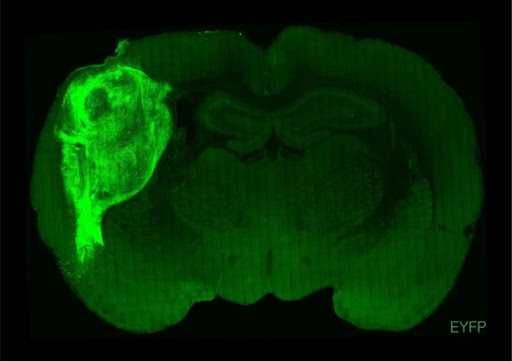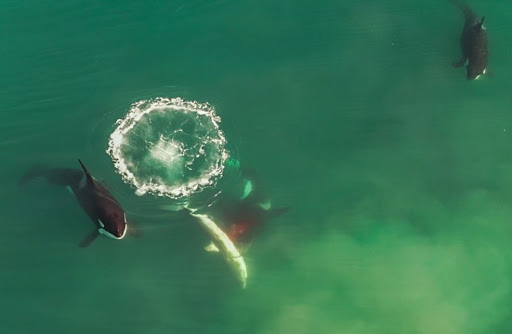This probably isn’t the mind control you’re thinking of

Image: Stanford University
Move over "hare-brained," there's a new brain-related idiom in town: "rat-brained." But according to a new study published yesterday in the peer-reviewed journal Nature, it's less of an insult – and more of a pretty-cool compliment.
🐀 The discovery: After neuroscientists at Stanford University transplanted specialized human brain cells into newborn rats, the human cells integrated with the rat tissue and continued to mature, forming new connections and eventually growing to cover nearly 20% of the animals’ entire brains.
🧠 Background… In biology, it’s notoriously difficult to study the early development of the human brain due to it being “virtually impossible” to acquire samples, per Stat News. (Which makes sense, if you think about it.🤔)
Thus, for decades, scientists had to rely on indirect clues from experiments carried out on other animals – until 2013, when neurobiologist Madeline Lancaster discovered human stem cells can grow into organoids, aka small spheres of brain tissue, when placed in the right nutrient solution.
- But in the years since, researchers learned brain organoids grown in the lab don’t reach the same size or make the same connections as normal human brains. So they began searching for friendlier surroundings – hence, the newborn rats.
👀 Looking ahead… The rat-brained Stanford researchers said their novel method can be used in future experiments to investigate the root causes of human brain disorders like autism, ADHD, Alzheimer’s, schizophrenia, and more.
Share this!
Recent Science & Emerging Tech stories

Science & Emerging Tech
| October 12, 2022NASA’s DART Mission was a smashing success
🛰☄️ Humans have officially proven we can alter the cosmos, per a NASA press release from yesterday documenting the success of its Double Asteroid Redirection Test (DART) mission.

Science & Emerging Tech
| October 7, 2022“Fish are food, not friends” –orcas, probably
🦈🐋 Scientists have provided the first video evidence that orcas (aka killer whales) are capable of hunting and killing great white sharks, per a new study published this week in the peer-reviewed journal Ecology.

Science & Emerging Tech
| October 5, 2022On the origin of species
🌊 Water droplets hold the secret ingredient to creating life from non-living chemicals, per new research published in the peer-reviewed journal PNAS.
You've made it this far...
Let's make our relationship official, no 💍 or elaborate proposal required. Learn and stay entertained, for free.👇
All of our news is 100% free and you can unsubscribe anytime; the quiz takes ~10 seconds to complete